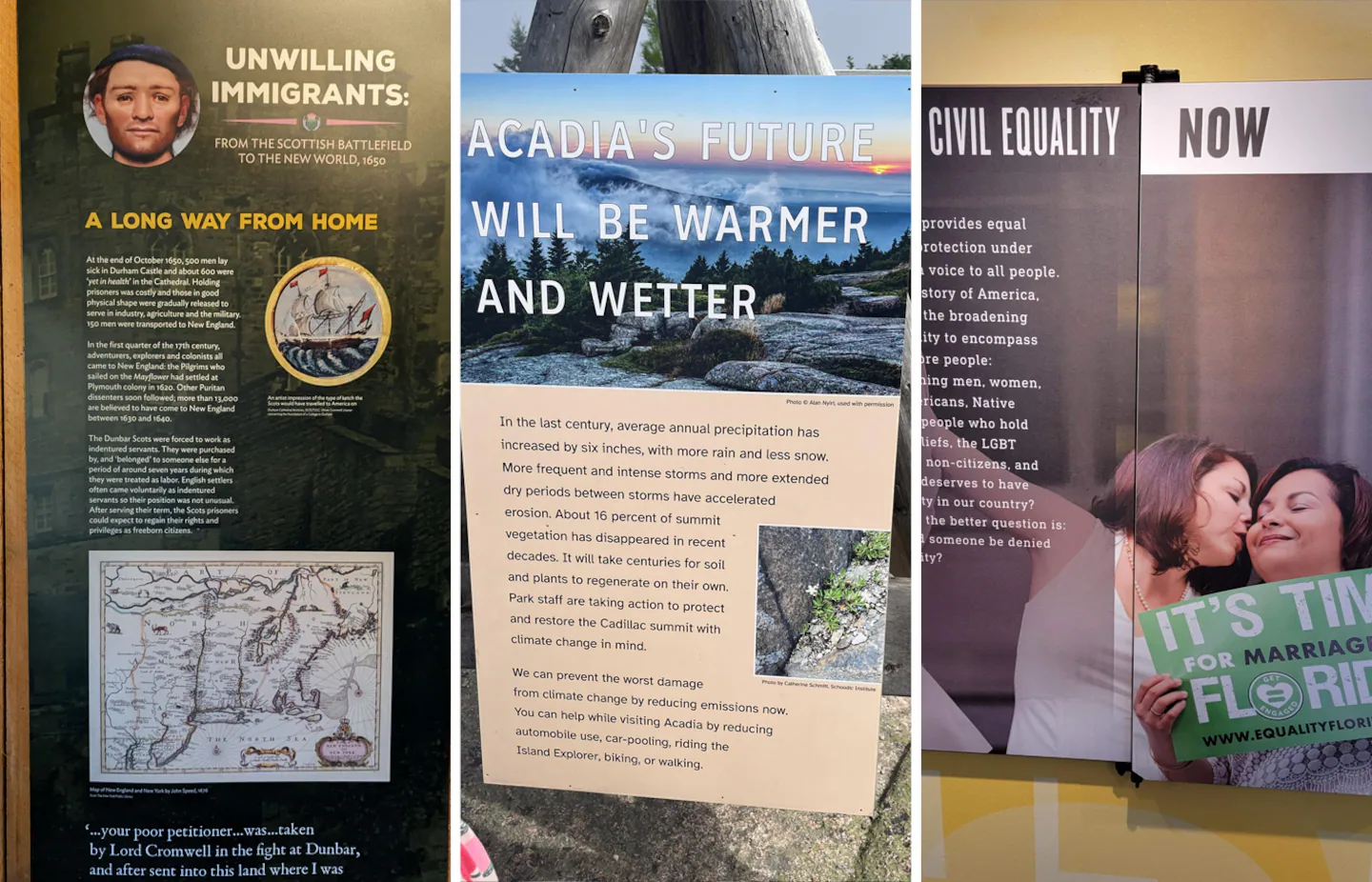Copyright The Boston Globe

In response to a federal government directive targeting national park signs, statues, and other public monuments that it says “inappropriately disparage Americans past or living,” a network of historians and librarians is fighting back — by creating a massive database of park signs from all over the country. “Real history is not just happy stories,” the group, Save Our Signs, declares on its website, which launched last week. The group asks members of the public to take photos of informational materials at national parks and submit them online to build a record before the accounts disappear. The aim for now is to catalog every sign in every park, because it’s not entirely clear what all is being targeted. The National Park Service has not released a list of what is being altered or removed. Advertisement “It’s not a transparent process and nobody knows what it means to be disparaging,” said Jenny McBurney, a government publications librarian at the University of Minnesota and a cofounder of Save Our Signs. “We can guess based on what they took down that it’s probably going to be around race and gender and climate, but we don’t really know. That’s why it’s really important to get pictures of everything.” The battle over signs and monuments at national parks comes amid a wider push by the Trump administration to scrub federal websites and public materials that reference topics it has deemed politically charged, including LGBTQ+ issues and race. The May directive from the Interior Department called for the “improvements” to be made by July 4, 2026, the 250th anniversary of the signing of the Declaration of Independence. Advertisement The directive followed a broader executive order from President Trump in March directing federal agencies to erase “improper partisan ideology” from public interpretation, pointing to exhibits at national museums that depict racism, or “do not recognize men” as much as women. Some things have already disappeared from national parks. At Acadia National Park in Maine, signs explaining how warming temperatures are reshaping the local environment were removed from Cadillac Mountain earlier this summer. In Georgia, officials at Fort Pulaski reportedly removed a historic image of an enslaved man whose back was covered in scars. A display at Jamaica Bay Wildlife Refuge in New York City that referenced slavery, Native American massacres, and Japanese American internment has also disappeared. Advocates say the removal of signs resembles the administration’s earlier efforts to purge data from the US Census Bureau, the Centers for Disease Control and Prevention, and other government websites. “It’s really appalling that the Trump administration is trying to censor and erase American history,” said Todd Martin, Northeast senior program manager at the National Parks Conservation Association. “Americans deserve to see the full history of our public parks.” Martin added that no modern president, Democrat or Republican, has launched a similar effort to rewrite America’s history. But the effort may not prove successful. “It has certainly increased public awareness about this history,” he said. “In many ways it could have backfired on the administration.” Scooty Nickerson can be reached at scooty.nickerson@globe.com.



